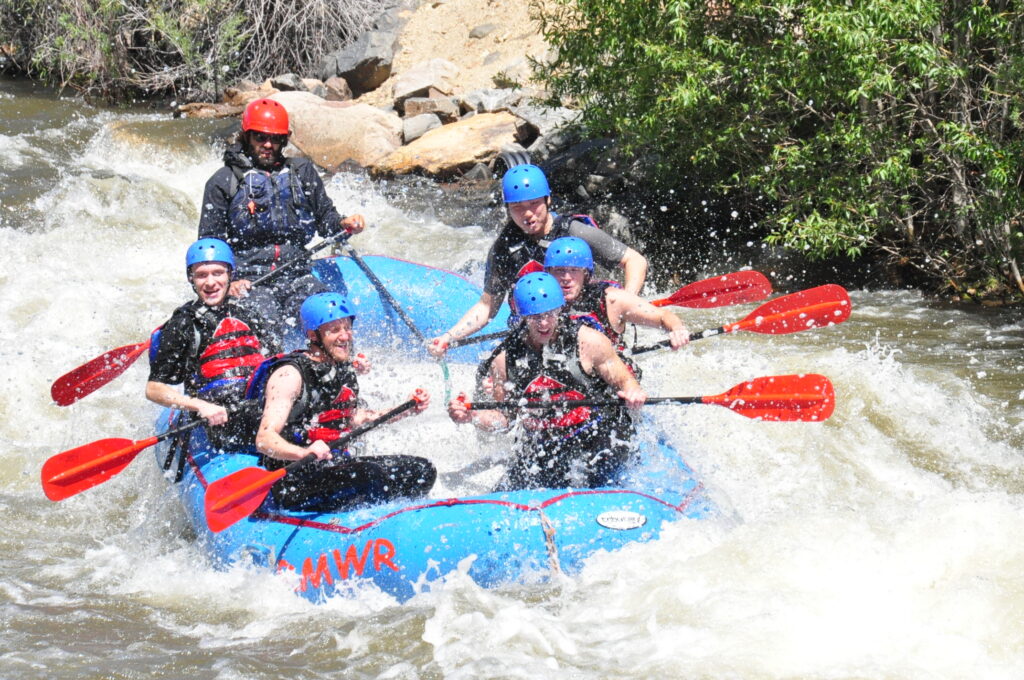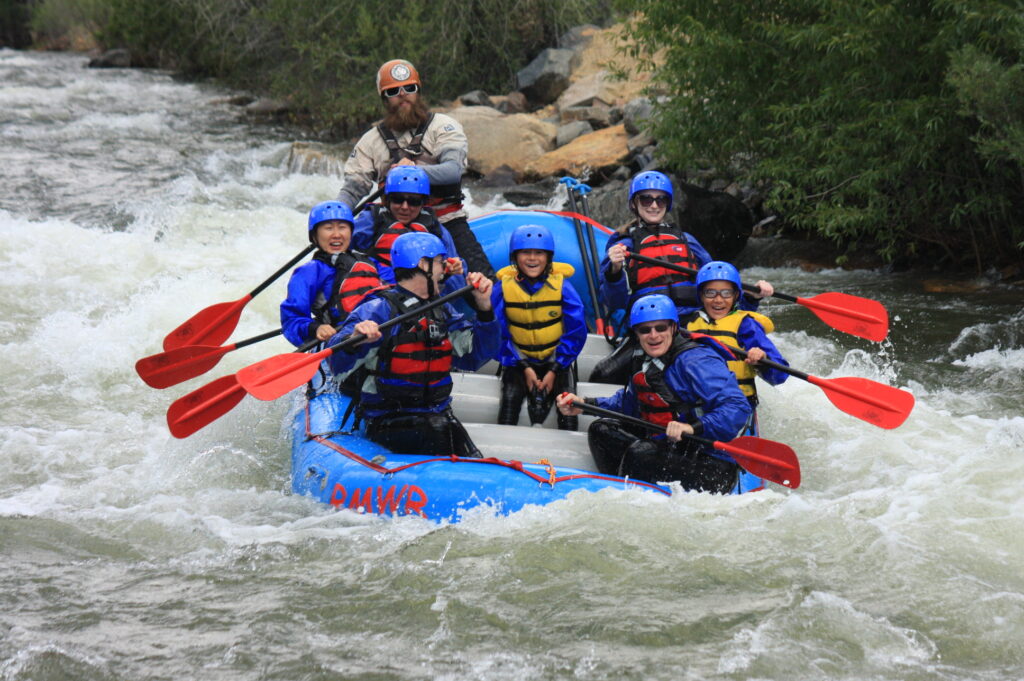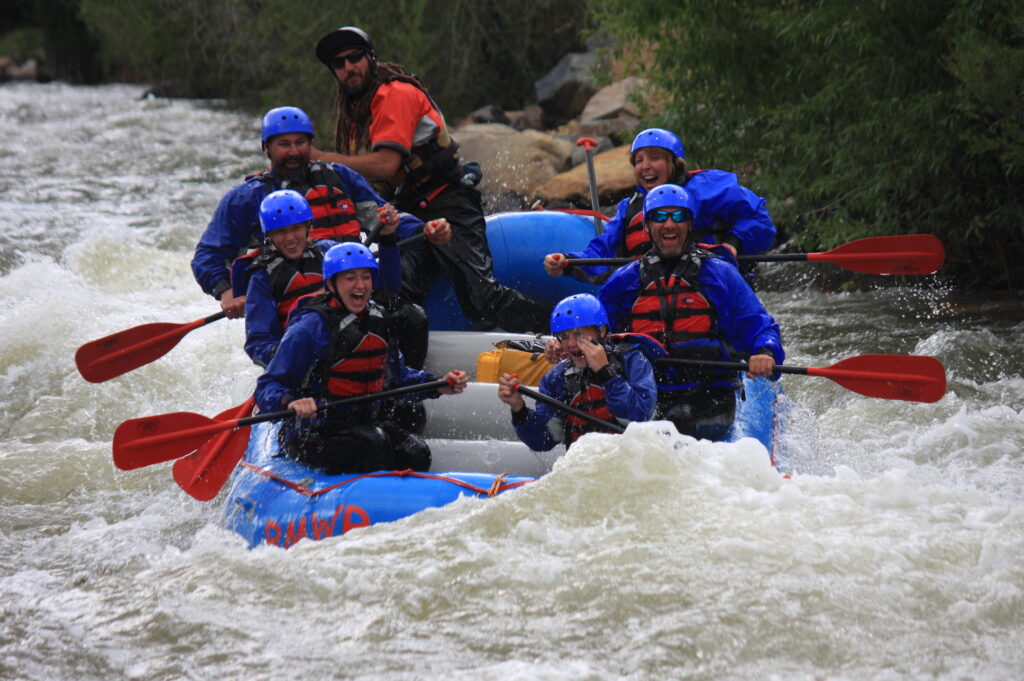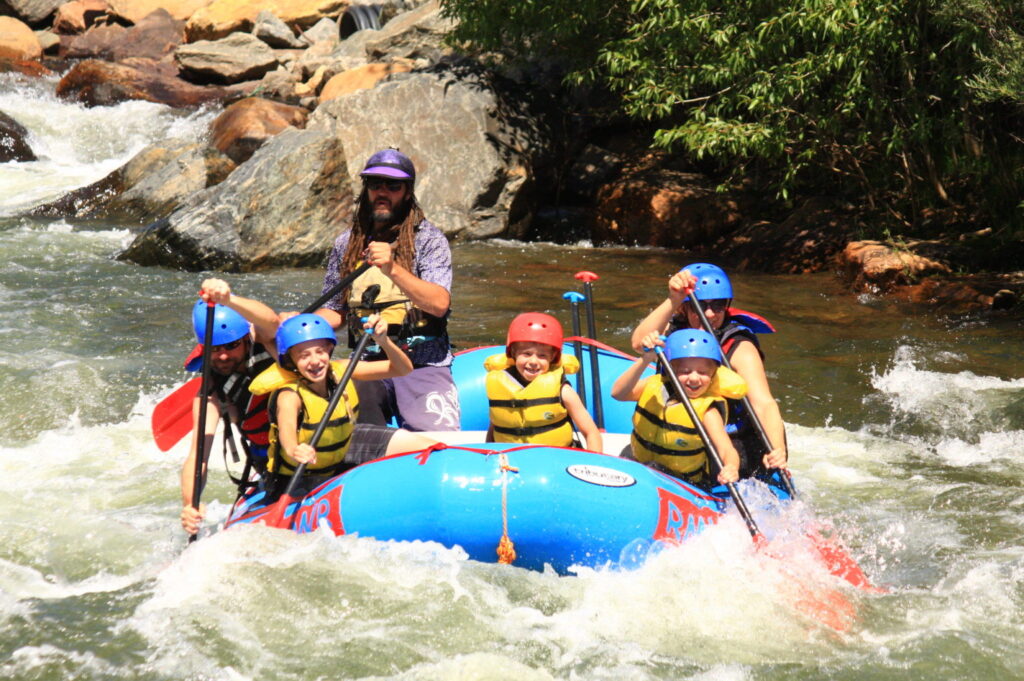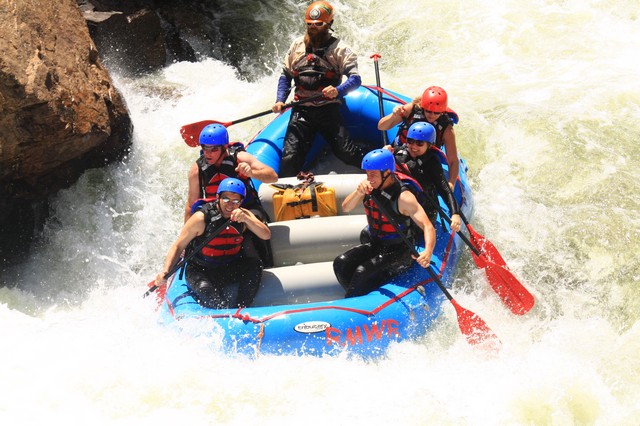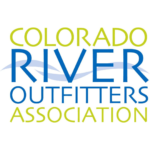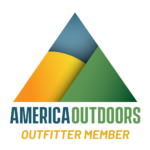Reservations are suggested as trips fill up fast, especially on weekends and around the 4th of July. We will try to accommodate any walk-in guests on a space available basis. A 20% deposit guarantees your spot and full payment is due 72 hours prior to your trip date. Groups of 10 or more receive a 10% discount, 20 or more a 15% discount, and 30 or more a 20% discount!
Class III (Beginner)– Our minimum age is 5.
Class IV (Intermediate) – Our minimum age is 14.
Class IV – V (Advanced) – Our minimum age is 15.
These minimum ages can change throughout the season for safety reasons due to the river level and intensity of the trip. We do not make exceptions based on a child’s height, weight or swimming ability.
Any bookings for a participant on a trip that is under the minimum age for that trip, is subject to cancelation without refund! Our minimum age is stipulated by insurance and there is “NO” justification for bending this rule. If your child is not going to be the minimum age at the time of the activity, “DO NOT BOOK THE TRIP”, they “WILL NOT” be allowed to go!
Please see our
Colorado Whitewater Rafting Trips page for more detailed information on the trip you would like. All meet 15 minutes before their trip time for check-in.
We have communal storage available for everyone on the trip to keep your non-valuable clothing items during your trip. We encourage you to keep your valuables in your locked car. We will hold onto your car keys for you during your trip.
A full refund will be issued, less a $10 per person processing fee, if canceled more than 72 hours prior to the departure of the trip. Cancellations within 72 hours of the departure of the trip will not receive any refund.
Any changes made to a trip departure time, date, or river section will result in a $5 per person processing fee and will be subject to availability. There will be no changes allowed once within 24 hours of the departure of the trip.
All trips depart as scheduled regardless of weather conditions. It is your responsibility to be at your trips designated outpost 15 minutes prior to your trip time. Please account for traffic, road construction, weather conditions, etc. There are no exceptions to this policy!
Yes, but no reputable outfitter should guarantee a safe trip. At Rocky Mountain Whitewater Rafting, our guides try to keep all guests in the boat and get them out of the water as quickly as possible in the event of a whitewater swim. It is always possible, when dealing with natural and sometimes changing elements are part of the adventure and excitement. Before every trip, your Trip Leader will conduct a thorough safety orientation to inform you on what to do in the event you encounter any situations during your trip.
Not for Beginner or Intermediate level trips. All guests are provided with a US Coast Guard approved PFD (personal floatation device, or life jacket) and is designed to keep you afloat should you find yourself out of the raft. Swimming ability is recommended for all class IV trips and all trips during high water. All Advanced trips REQUIRE the ability to swim!
If you think your guide has made a difference on your trip, then a gratuity is greatly appreciated. How you would tip in a restaurant is a guide to tipping your river guide.
Class I – Easy – Moving water with riffles and small waves. Few obvious obstructions all easily missed. Risk to swimmers is low and self-rescue is easy.
Class II – Novice – Straight forward rapids with clear and wide channels. Occasional maneuvering may be required, but rocks and waves are easy to navigate through. Swimmers are seldom injured and group assistance is seldom needed.
Class III – Beginner – Rapids with moderate, irregular waves which may be difficult to avoid. Complex maneuvers and good boat control in tight passages or around ledges are often required. Large waves, strong eddies and powerful current effects may be present. Scouting is advisable for inexperienced parties. Injuries while swimming are rare and self-rescue is likely.
Class IV – Intermediate – Intense, powerful and predictable rapids that require precise boat handling. Large, unavoidable waves and holes and constricted passages demanding fast maneuvers. Rapids may require “must make” moves. Scouting may be necessary the first time down. Swimmers risk is moderate to high. Group assistance for rescue is important as self-rescue is difficult.
Class V – Advanced – Extremely long, obstructed, or violent rapids. Drops may contain large waves and holes, steep chutes with demanding routes and few eddies. Rapids may continue for long distances between pools, demanding a high level of fitness. Swims are hazardous and group rescue is often difficult.
Class VI – Extreme – These runs have almost never been attempted. High level of difficulty and danger and rescue may be impossible. The consequences of errors are very severe. For teams of experts, only at favorable water levels, and with a high degree of planning. Not impossible but very improbable.
Q: When does the season start for Rocky Mountain Whitewater Rafting?
To put it simply, mother nature dictates when the water starts flowing enough to go rafting on Clear Creek. A good rule of thumb is that we will be operating the 2nd weekend in May but history has shown that this could be up to 10 days earlier or later than this date.
Q: When is high water on Clear Creek?
High water on Clear Creek can be a fun and exhilarating experience for those prepared for a whitewater trip at the next level. The water is very swift at all water levels and gets exponentially more powerful as the water gets higher as it gains more force due to the steep and rocky nature of the creek and gravity. In an average year, the peak water levels happen in the 2nd or 3rd week of June, but as with everything on Clear Creek, the weather dictates the exact date and it has happened as early as late May and as late as the first week of July. Feel free to give us a call for our seasonal advice.
Q: When is the end of the season on Clear Creek?
This is a very difficult question to put a simple answer to. The length of the season depends on several factors including the previous winters snow pack, general nature of the temperature in Colorado (warmer = faster melt and colder = longer retained snow pack), and lastly if we are getting consistent afternoon rain showers, our season is often extended. This being said, the typical end of the season in in mid August but has been extended into September with the right weather combinations.
Q: What if my trip is cancelled due to low water conditions at the beginning or the end of the season?
Rocky Mountain Whitewater Rafting will provide you a full refund of the amount you paid if we are unable to facilitate your trip. Please refer to the Cancellation Policy if you need to cancel or change your trip.
